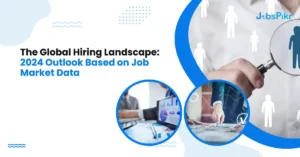Last year, we were reminded that the only constant in life is change. We saw skills rise to the forefront as workers embarked on lifelong learning, and witnessed organizations putting skills-based hiring into practice. In this study, we sought to identify trends and insights that would help businesses and workers find growth and opportunity in a changing world. We gathered data from over 3,500 respondents across seven markets in the Asia Pacific region to find out how the future of work has changed. We looked at the shifting role that Human Resource teams will play in organizations, how organizations will plan, hire, develop and engage their talent, and how employer branding will help organizations attract and retain their best people. We found that skills will continue to pave the way for economic recovery and growth in the future of talent.
79% of organisations will look for skills when hiring talent in future, and 86% of companies have a dedicated training program to aid their employees in learning new skills. We also found that HR played a bigger role during the pandemic, for example, 58% of companies saw HR take the lead in training employees.
Key Findings of Talent Insights
1. The role and responsibilities of HR will expand
The role of HR has always been critical to an organization’s success. However, in the last year, the pandemic has caused a shift in many organizations. HR teams have had to adjust to reduced hiring budgets, flexible working arrangements, and new working processes to ensure employees collaborate and communicate. Therefore, the skills required of a modern-day HR professional and HR’s scope and responsibilities within an organization have also evolved in the future of talent.
2. Organizations are more open to hiring internally and willing to allow more employees to work remotely
In the last year, organizations have adapted to the new world of work. Amidst budget cuts and role hybridization, hiring internally has received greater attention. Our findings also reveal that in one way or another, remote work is here to stay. While these changes are a positive step towards ensuring an organization can remain agile no matter the circumstance, they are not without challenges.
3. In the future, organizations will focus more on gender equality in the workplace, hiring for skills, and employee development.
Our findings spotlight how candidates are being hired — especially with regards to maintaining gender diversity and equality in organizations and placing importance on skills over traditional qualifications or experience. To hire the talent they need, organizations will use data and analytics to simplify the matching process of candidates.
4. Employer branding and employee engagement will play a bigger role in attracting and retaining talent.
In the race to attract talent and retain the best and brightest, employer branding and employee engagement are the other important puzzle pieces. Our findings suggest that a strong employer brand can positively impact business. The majority of companies are making a concerted effort to create an environment where employees can thrive so their business can continue to grow in the future of talent.
The Future of Talent Architecture
The talent architecture within an organization has changed. Organizations have started to hire for open roles internally and now allow more of their workforce to work remotely. This looks set to continue as we move forward into a post-pandemic world.
1. More companies are enjoying the benefits of hiring for open roles internally
The need to hire internally is driven by a suite of benefits that benefit both employers and employees. For employers, onboarding processes are simplified which means the speed to hire can generally be accelerated and hiring costs can be reduced. 65% of companies said they prefer to hire internally if the role requires an insider’s view. For employees, a change of role can be rewarding as it allows them a chance to enhance their skills, develop new interests, and gain a more holistic understanding of the organisation. 65% preferred to hire internally to give employees a sense of progress, and 56% opt for internal hiring to encourage employee loyalty and retention.
2. The remote workforce is here to stay in the future of talent
Aside from the increased willingness to hire for open positions internally, organisations also foresee a permanent shift in the traditional workforce structure. Companies have not only grown accustomed to remote working but have also started warming up to the idea of relying on a remote workforce well into the future — particularly large organisations.
Future of Talent – Trends in Hiring, Jobs and Skills
- Data and analytics are being used for informed decision-making
With the growing use of job data and sophisticated analytical tools, assessing and mapping skills has become easier than ever. Algorithms are simplifying the matching process of candidates and skills are being used as the primary criteria. 44% of companies surveyed have used data tools for mapping skills and 82% of companies use data in hiring decisions. Larger companies show a higher propensity to derive analytical insights from data.
- Diversity and equality takes the spotlight in hiring
2020 saw many companies diversify their workforce and provide equal opportunities for employees. As we look ahead to the post-COVID era, it’s encouraging to see that 78% of organizations are striving to eliminate inequality and create opportunities for under-represented minorities to join the workforce. This is a positive step forward toward the elimination of conscious and unconscious hiring biases, and it’s supported by the rise of remote work.
- As more roles emerge, there’s a hunger to pick up new skills
Amid COVID-19, many employees branched out to undertake more responsibilities, or a role that fulfilled multiple functions. In fact, more than 50% of companies surveyed indicated that role hybridization has increased since 2019. This growth is a positive move forward as it allows employees to achieve cross-functional experience and learn new skills.
- Traditional certifications are out, skills are in
In a world reshaped by the COVID-19 pandemic, companies are now seeking to hire candidates with specialized skill sets instead of paper qualifications. This was a trend that we were already seeing before the pandemic, but today, skills are becoming even more important. To help employees stay relevant, businesses should invest in programmes that allow employees to upskill and learn on-the-job. In fact, 86% of companies surveyed now have a dedicated program for developing their talent and 66% of companies are providing upskilling or reskilling opportunities. These opportunities are being provided equally to top and junior management.
Tips to Prepare Your Organization and Workforce for a Skills-Based Future
Tip #1: Rely on data and analytics to find candidates with the right skills. Data not only informs the skills that organizations need to hire today, but also the skills needed as the business expands in the future. Organizations can invest in tools that will help them match roles to the right candidates.
Tip #2: Put formal internal hiring processes in place. Rather than relying on employees to find opportunities on their own, internal recruiting should be structured and proactive. Part of this structure may include implementing a system that will help the organisation identify their employees’ aspirations. It should also include training programmes to help employees gain new skills to fill the roles they want. Internal hiring must be a shared responsibility between an organisation, and its workers.
Tip #3: Strive to encourage a mindset of lifelong learning. It’s uncommon for external or internal hires to possess 100% of the skills and experience that a role requires. So, be prepared to train and support your talent as they take on more responsibility, or transition into new roles. By focusing on developing employees skills, organisations will eventually be able to groom a diverse workforce, which can enhance business outcomes.
Tip #4: Invest in HR teams as much as you invest in your talent. Business leaders will increasingly rely on HR to shape business strategies. HR professionals will also see increased roles and responsibilities, especially in the areas of employee safety, wellbeing and training. That means HR personnel also need to possess new skills in order to fulfill their increased duties. So, don’t forget to invest in your HR personnel.
Tip #5: Set teams up to succeed in the future world of work. Aside from encouraging lifelong learning, it’s also important to help workers remain successful as they work remotely. This may mean keeping them engaged through various activities, giving them time off to ensure their wellbeing, and encouraging interaction and collaboration between teams




